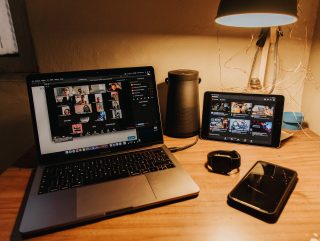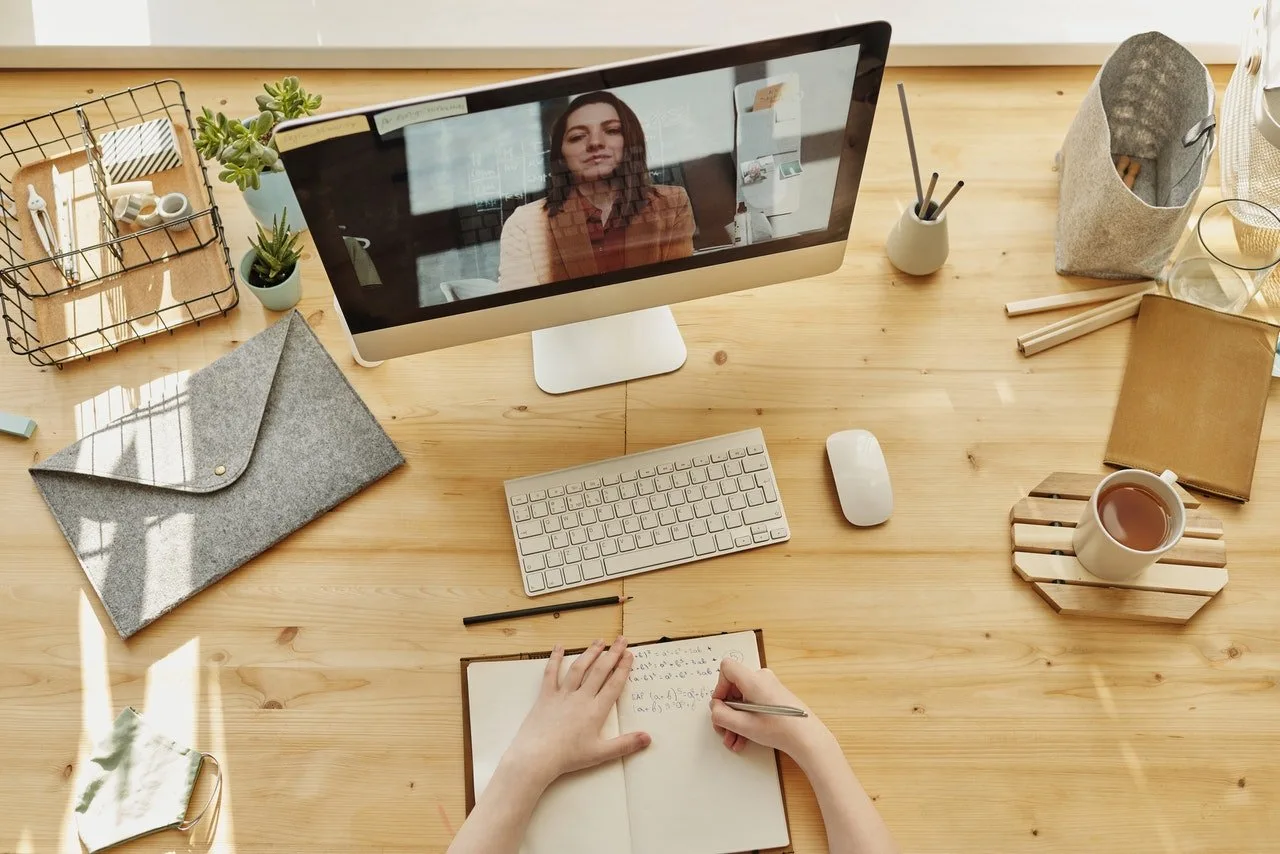You hear an echo, but you don’t see anybody on screen. You’ve been talking for five minutes and yet no one’s responded to anything you’ve said. It’s only after you receive a message in the chatbox that you realize the reason no one’s responding to you is that you’ve been on mute for the past 10 minutes. You inwardly groan when you realize that this is your first of many Zoom meetings for the day, and yet you’re already exhausted.
The pandemic has led to an increase in usage of ZOOM meetings, be it for work, weddings, or even dates, yet a new phenomenon accompanying the growth in ZOOM meetings is the fatigue that comes with it. So much so that researchers from Stanford University set out to understand the psychological effects of too much video conferencing.
What causes ZOOM Fatigue?
A study published in Technology, Mind, and Behavior and led by the founding director of the Stanford Virtual Human Interaction Lab Jeremy Bailenson, Ph.D. set out to examine the psychological consequences of spending too much time on ZOOM. The researchers acknowledged that excessive ZOOM meetings were really tiring people out, and they also shared four main reasons as to why.
1. Excessive amounts of close-up eye contact is highly intense

Photo by Chris Montgomery on Unsplash
During ZOOM calls, everyone is looking at everyone during the entire duration of the meeting and this can dramatically increase the amount of eye contact. According to Bailenson, both the amount of eye contact and the size of faces on screens during ZOOM calls are unnatural.
“Social anxiety of public speaking is one of the biggest phobias that exists in our population,” Bailenson writes in the study, “When you’re standing up there and everybody’s staring at you, that’s a stressful experience.”
If excessive eye contact wasn’t enough, video calls also increase the size and proximity of the speaker’s face, making you wish that you could practice some virtual social distancing.
“With Zoom, all people get the front-on views of all other people nonstop. This is similar to being in a crowded subway car while being forced to stare at the person you are standing very close to, instead of looking down or at your phone,” Bailenson writes in the study, “What’s happening, in effect, when you’re using Zoom for many, many hours is you’re in this hyper-aroused state,”
2. Seeing yourself during video chats constantly in real-time is fatiguing
It’s important to love the face that you’re born with, but that doesn’t mean you want to be staring at it for most of the day, which is exactly what happens as many video calling apps display a square of what you look like on camera during a chat.
“In the real world, if somebody was following you around with a mirror constantly – so that while you were talking to people, making decisions, giving feedback, getting feedback – you were seeing yourself in a mirror, that would just be crazy. No one would ever consider that,” Bailenson writes.“It’s taxing on us. It’s stressful. And there’s lots of research showing that there are negative emotional consequences to seeing yourself in a mirror.”
3. Video chats dramatically reduce our usual mobility
It’s normal to get up during a face-to-face meeting to hand someone something or to grab a glass of water. Unfortunately, during videoconferencing, movement is limited as participants need to stay visible during meetings. This then forces them to stay in one place until the meeting is over.
4. Nonverbal cues are harder to interpret
Nonverbal cues are one of the most, if not the most, important aspects of communication as they provide an accurate understanding of where the conversation is going. Unfortunately, research has shown that nonverbal cues are harder to interpret over video.
As a result, people have to work harder over video when giving nonverbal cues, having to be more aware and exaggerated to get their message across, which can be draining.
“You’ve got to make sure that your head is framed within the center of the video. If you want to show someone that you are agreeing with them, you have to do an exaggerated nod or put your thumbs up. That adds cognitive load as you’re using mental calories in order to communicate,” adds Bailenson. These actions may explain why a 2018 study revealed that people speak 15% louder on video than they do in person.
So how can we beat Zoom fatigue?

Photo by Edward Jenner from Pexels
Bailenson made sure to emphasize that the purpose of the study was not to vilify videoconferencing apps. Rather, he wants to highlight how exhausting these apps are and how one can reduce fatigue. In fact, he’s even suggested a few ways to combat this fatigue.
1. Reduce eye-contact
One of the ways to do this is by taking ZOOM out of the full-screen option and reducing the size of the Zoom window.
To encourage a more conformable space, Bailenson suggests placing your laptop or monitor at a comfortable distance. According to him, he was comfortable with a distance of 50 centimeters away.
2. Hide your face
Bailenson recommends turning off your camera (blame your connection speed) by using the “hide self-view” button. He also advises that videoconferencing platforms should change the default practice of beaming the video to both self and others when it only needs to be sent to others.
3. Create a larger field of view
If you want to create more distance and flexibility for you to move around, Bailenson suggests that you think more about the room you’re videoconferencing in, where the camera is positioned, and whether things like an external keyboard can help create distance or flexibility as this will provide you with space to walk around.

Photo by Anna Shvets from Pexels
4. Choose Audio only
You’re allowed to give yourself a video break and choose “audio-only”.
“This is not simply you turning off your camera to take a break from having to be nonverbally active, but also turning your body away from the screen,” Bailenson said, “so that for a few minutes you are not smothered with gestures that are perceptually realistic but socially meaningless.”
5. Avoid multitasking
It’s easy to want to multitask during a ZOOM meeting, especially when you’re not the focal point of conversation. However, you should remember that research has revealed that multi-taskers often can’t remember things as well as those who focus on a singular thing at a time. What’s more, multitasking can also cost you productivity time and this can then trigger you to work harder in an effort to make up lost time, thus draining you.
As tempting as it can be, the next time you’re on a video chat, close any unnecessary tabs or programs and stay present.
6. Switch to phone calls or email

Photo by Gabriel Benois on Unsplash
The truth is most meetings can be resolved in 2 minutes over email, or even over a single WhatsApp message. Yet, for some odd reason, some people still want to have video meetings. That said, if you’re scheduled for ZOOM meetings, you can try suggesting switching to a phone call instead.
Want to know more?
ZOOM meetings aren’t only tiring, but they could also be aging you. All that extra time we’re spending on our devices can trigger oxidative stress – which we know promotes skin aging. So, how are ZOOM meetings aging us, and what can we do to stop it?
References
Bailenson, J. N. (2021). Nonverbal Overload: A Theoretical Argument for the Causes of Zoom Fatigue. Technology, Mind, and Behavior, 2(1). https://doi.org/10.1037/tmb0000030
Croes, E., Antheunis, M. L., Schouten, A. P., & Krahmer, E. J. (2019). Social attraction in video-mediated communication: The role of nonverbal affiliative behavior. Journal of social and personal relationships, 36(4), 1210–1232. https://doi.org/10.1177/0265407518757382
Pallotti, F., Tubaro, P., Casilli, A. A., & Valente, T. W. (2018). “You See Yourself Like in a Mirror”: The Effects of Internet-Mediated Personal Networks on Body Image and Eating Disorders. Health communication, 33(9), 1166–1176. https://doi.org/10.1080/10410236.2017.1339371
Uncapher, M. R., & Wagner, A. D. (2018). Minds and brains of media multitaskers: Current findings and future directions. Proceedings of the National Academy of Sciences of the United States of America, 115(40), 9889–9896. https://doi.org/10.1073/pnas.1611612115






![women [longevity live]](https://longevitylive.com/wp-content/uploads/2020/01/photo-of-women-walking-down-the-street-1116984-100x100.jpg)









